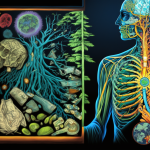Intergenerational Teamwork in Nursing
Nursing is a dynamic profession that requires teamwork and collaboration to provide the best possible care for patients. One way that healthcare organizations are promoting effective teamwork is through intergenerational teams, which consist of individuals from different age groups working together to achieve a common goal. In nursing, intergenerational teams can be highly beneficial, but they also come with a few drawbacks.
Benefits
Intergenerational teams in nursing bring together individuals with different perspectives, experiences, and knowledge. This can lead to increased creativity, problem-solving, and innovation. For example, a younger nurse may bring a fresh perspective on using technology to improve patient care, while an older nurse may have years of experience with patient communication and counseling. Combining these strengths can lead to a more well-rounded team and improved patient outcomes.
Intergenerational teams also promote mentorship and professional growth. Older nurses can provide guidance and mentorship to younger nurses, sharing their knowledge and expertise. Younger nurses, on the other hand, can bring new ideas and energy to the team, helping older nurses to stay up-to-date with the latest practices and technologies. This exchange of knowledge and skills can create a positive learning environment and foster professional growth for all team members.
Drawbacks
One challenge is the potential for generational differences to create communication barriers. For example, younger nurses may prefer to communicate via text message or email, while older nurses may prefer face-to-face communication. This can lead to misunderstandings and miscommunication, which can ultimately impact patient care.
Another potential challenge is that intergenerational teams may struggle to find common ground or may have different approaches to patient care. For example, a younger nurse may prioritize technology and efficiency, while an older nurse may prioritize patient comfort and communication. Balancing these approaches can be challenging, but it’s important for team members to work together to find a common ground that puts the patient first.
Takeaways
Intergenerational teams in nursing can be highly beneficial, but they do require effective communication, collaboration, and a willingness to learn from one another. By leveraging the strengths of different age groups and promoting mentorship and growth, intergenerational teams can provide high-quality, patient-centered care that meets the needs of a diverse patient population



